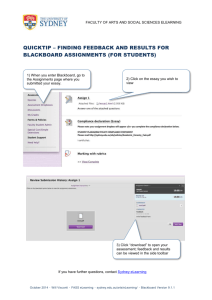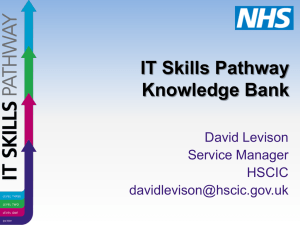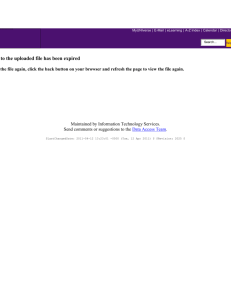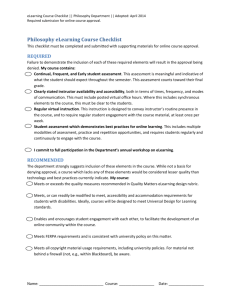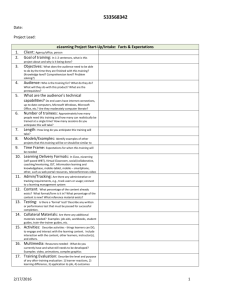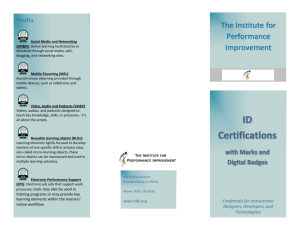Student perception in the online course “GEC121 Computer and
advertisement
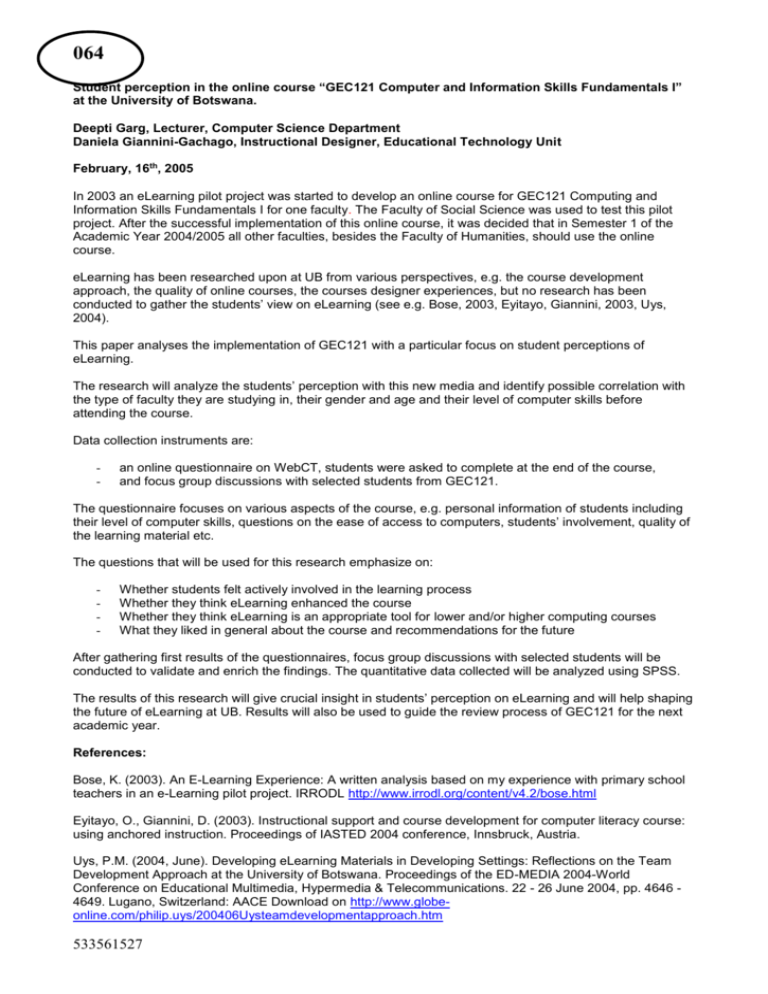
064 Student perception in the online course “GEC121 Computer and Information Skills Fundamentals I” at the University of Botswana. Deepti Garg, Lecturer, Computer Science Department Daniela Giannini-Gachago, Instructional Designer, Educational Technology Unit February, 16th, 2005 In 2003 an eLearning pilot project was started to develop an online course for GEC121 Computing and Information Skills Fundamentals I for one faculty. The Faculty of Social Science was used to test this pilot project. After the successful implementation of this online course, it was decided that in Semester 1 of the Academic Year 2004/2005 all other faculties, besides the Faculty of Humanities, should use the online course. eLearning has been researched upon at UB from various perspectives, e.g. the course development approach, the quality of online courses, the courses designer experiences, but no research has been conducted to gather the students’ view on eLearning (see e.g. Bose, 2003, Eyitayo, Giannini, 2003, Uys, 2004). This paper analyses the implementation of GEC121 with a particular focus on student perceptions of eLearning. The research will analyze the students’ perception with this new media and identify possible correlation with the type of faculty they are studying in, their gender and age and their level of computer skills before attending the course. Data collection instruments are: - an online questionnaire on WebCT, students were asked to complete at the end of the course, and focus group discussions with selected students from GEC121. The questionnaire focuses on various aspects of the course, e.g. personal information of students including their level of computer skills, questions on the ease of access to computers, students’ involvement, quality of the learning material etc. The questions that will be used for this research emphasize on: - Whether students felt actively involved in the learning process Whether they think eLearning enhanced the course Whether they think eLearning is an appropriate tool for lower and/or higher computing courses What they liked in general about the course and recommendations for the future After gathering first results of the questionnaires, focus group discussions with selected students will be conducted to validate and enrich the findings. The quantitative data collected will be analyzed using SPSS. The results of this research will give crucial insight in students’ perception on eLearning and will help shaping the future of eLearning at UB. Results will also be used to guide the review process of GEC121 for the next academic year. References: Bose, K. (2003). An E-Learning Experience: A written analysis based on my experience with primary school teachers in an e-Learning pilot project. IRRODL http://www.irrodl.org/content/v4.2/bose.html Eyitayo, O., Giannini, D. (2003). Instructional support and course development for computer literacy course: using anchored instruction. Proceedings of IASTED 2004 conference, Innsbruck, Austria. Uys, P.M. (2004, June). Developing eLearning Materials in Developing Settings: Reflections on the Team Development Approach at the University of Botswana. Proceedings of the ED-MEDIA 2004-World Conference on Educational Multimedia, Hypermedia & Telecommunications. 22 - 26 June 2004, pp. 4646 4649. Lugano, Switzerland: AACE Download on http://www.globeonline.com/philip.uys/200406Uysteamdevelopmentapproach.htm 533561527
